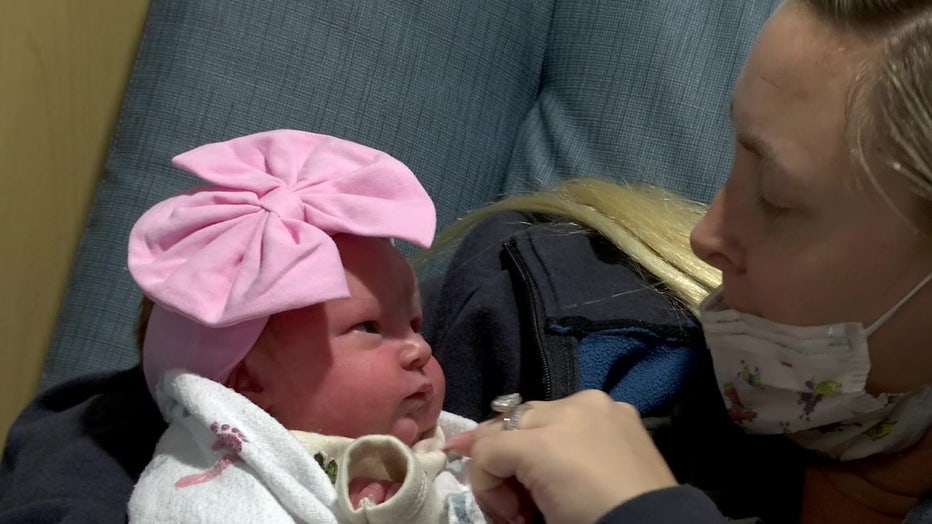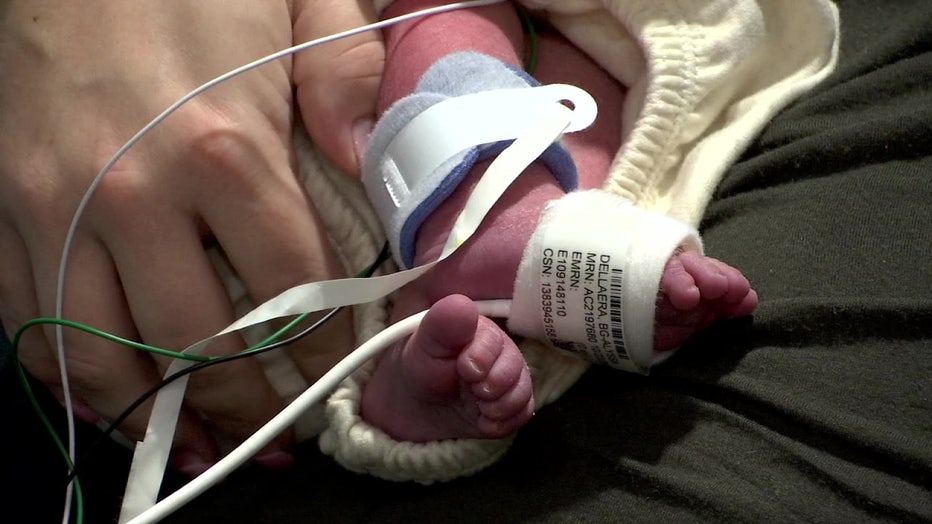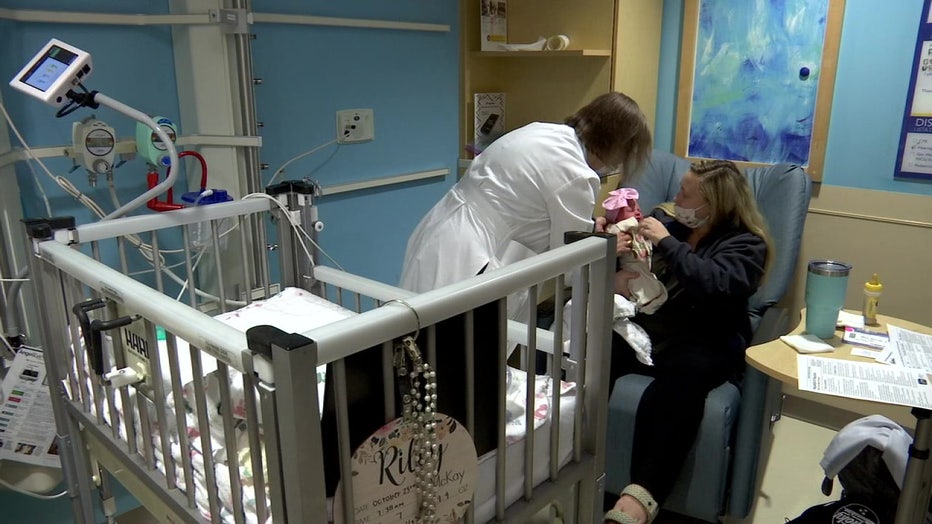Cooling technology helped save premature baby’s life, brain, doctors say
ST. PETERSBURG, Fla. - November is Prematurity Awareness Month and a St. Petersburg children's hospital is touting its ability to treat high-risk babies.
When 10-day-old Riley was born a few weeks early, she suffered complications and went two minutes without oxygen, causing her to be at risk for a permanent brain injury.
"I was heartbroken," Alyssa Dellaera, Riley’s mom, said. "We were told the whole time the pregnancy is great going in the right direction, everything’s normal and then just one split second, there’s an issue with the umbilical cord and everything is not normal. Everything’s not fine and your baby is getting rushed to an ICU," Dellaera said.
Within an hour, the team at Johns Hopkin’s All Children’s Hospital’s NICU started her treatment.
"She was treated with what’s a relatively new treatment called therapeutic hypothermia or cooling which involves three days of cooling the baby’s temperature down to 33 ½ degrees centigrade, which diminishes the second wave of brain injury that happens after low oxygen," Dr. Linda Van Marter, director of Maternal, Fetal and Neonatal Institute, said.

When 10-day old Riley was born a few weeks early, she suffered complications and went two minutes without oxygen, causing her to be at risk for a permanent brain injury.
Van Marter is one of Riley’s doctors. She said the treatment is life-saving and brain-saving.
"In this case, it really benefited little Riley because our team was immediately available on delivery, able to provide resuscitation and then offer cooling in a very quick timeframe," Van Marter said.
READ: March of Dimes Hillsborough County ambassador family shows hope for preemies
They were able to start treatment so fast, she said, because Riley was born at Bayfront Baby Place, which is on the third floor of All Children’s. The partnership between Bayfront Health and All Children’s, Van Marter said, makes it easier to quickly move high-risk babies to All Children’s NICU.
"I think delivering at the Baby Place and having such close access to the NICU here really made a difference in Riley’s case," Dellaera said.

Riley underwent life-saving and brain-saving cooling technology in the NICU.
The NICU has 97 beds and has a level four designation from the American Academy of Pediatrics, the highest level available. Van Marter said most of those beds are usually filled with babies who were born as early as 22 weeks, to those who were born close to full term, but have problems at birth.
According to the National Institutes of Health, one in 10 babies was born prematurely in 2020. Van Marter said patients come from across the state and some from different parts of the country for their care.
READ: Boy born prematurely plans to pursue medical career after inspiring dad to become a NICU nurse
"When we see a healthy, full-term baby, it is something of a miracle even though it is much more common to have a healthy, full-term baby. About 90 percent of babies are born completely healthy at full-term gestation, but for those 10 percent who are preterm and require our services, we’re really glad that we’re here to help," Van Marter said.

November is Prematurity Awareness Month, and according to the National Institutes of Health, one in 10 babies were born prematurely in 2020.
A team of more than 200 nurses, doctors from all disciplines, social workers, occupational therapists, physical therapists, and speech therapists take care of the babies. At any one point in time, 15 doctors are working in the NICU, Van Marter said. They also work with teams of specialists who are in other parts of the hospital.
As for Riley, her parents hope she’s heading home next week.
"I think the thing we’re most looking forward to is a little bit of normalcy and getting into a routine and having Riley meet the dogs that she listened to bark for the last eight months, just really loving on her at home," Dellaera said.

